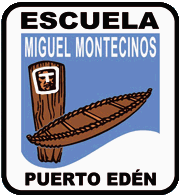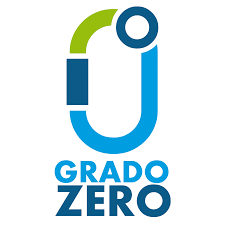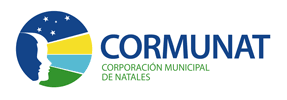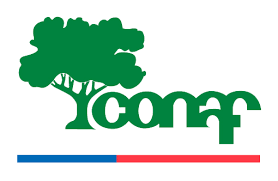Preparing Ultima Patagonia 2022 and the children's expedition to the Témpanos glacier
- EspeleoPatagonia

- Sep 19, 2021
- 5 min read
Updated: Jan 16, 2022
From September 2nd to 12th, Leo and Natalia travelled to Puerto Eden in order to prepare the activity "Cuerdas y Más, children's expedition to the Témpanos glacier" with the students of the Miguel Montecinos school in Puerto Eden. Natalia was also able to make numerous arrangements to anticipate several of the more complex logistical aspects of Centre Terre's Ultima Patagonia 2022 expedition.
"Cuerdas y Más, getting to know the ice glaciers"
The activities that we develop as Asociación Espeleológica de Patagonia have caving as a common thread, understood in its broadest sense and, therefore, considering its strong educational aspect. In Chile, the joint work initiated in 2019 with the Miguel Montecinos C. school in Puerto Eden has allowed us to shape a school project shared and supported by the Eden community, which - we hope - will lay the foundations to share this experience with other schools in the province of Última Esperanza, in the region of Magallanes.

Inspired by the exploration work of the Patagonian karst of Centre Terre (www.archipielagomadrededios.cl), "Cuerdas y Más" follows in the footsteps of the cavers of this French association with the young explorers of Puerto Eden in order to rediscover and understand their environment through caving.
You will find more details abount this project in www.cuerdasymas2021.cl
But if organising an expedition according to the premises of self-management, autonomy, safety and self-financing is already a challenge in the case of Centre Terre's "Ultima Patagonia" expeditions, following this same path, where children are the protagonists, becomes even more complex.
It is therefore essential to anticipate all aspects related to logistics, security and, very importantly, to involve the children of Puerto Eden in these preparations, who are coming from a long period of confinement and non-face-to-face classes.
With these goals in mind, Leo and Natalia set course for Puerto Eden.
Patagonia, an open-air classroom
Since 2019, Romina Pizarro, the teacher in charge of the Miguel Montecinos school, and Natalia have been working together with Centre Terre's educational resources. Thanks to this, the educational contents of Centre Terre's expeditions in the Patagonian karst, used for years by schools in France thanks to the collaboration with the French Ministry of Education, will also be available in Spanish and slightly adapted to the Chilean educational context. All the files and resources, as well as other content created by Chilean participants in Centre Terre expeditions, will soon be available on the Centre Terre website.
Educating in a remote location - Photos: Leo Rivas
In order to make the most of Leo and Natalia's visit, Romina and Denis Montecinos, also a teacher at the school, organised a series of activities to get the young expeditioners physically active. The sporting nature of caving allows them to work on the many aspects related to physical activity, ranging from nutrition, through personal care to rope handling, one of the children's favourites.
The activities took place at the school and on the ramp of the Puerto Eden jetty thanks to the coordination with Empresa Portuaria Austral - Photos: Isabel Negué, María José González, Juan Ávila, Denis Montecinos, Leonardo Rivas, Natalia Morata
The Tempanos glacier, our playground
Puerto Eden is one of the most isolated localities in Chile and the only inhabited one in the Patagonian channels. Access is only by sea. Puerto Eden is far from everything, but it is close to the Madre de Dios archipelago and the Témpanos glacier, in the Southern Patagonian Ice Field.

Puerto Eden, between the ice glaciers and the marble glaciers of southern Patagonia - Photo: Natalia Morata
In addition to the activities carried out in Puerto Edén, one of the main objectives of this preparation trip was to visit the Témpanos glacier area to check the state of the CONAF hut, which will serve as the base camp for the children's expedition in November 2021. In this sense, the support of CONAF, an essential partner in this activity, is key to the success of the children's expedition.
The "Capitán Rebequita" was the vessel that transported the pre-expedition team. On board, accompanying Leo and Natalia, were: Juan Ávila, the captain; Juan Carlos Tonko, second in command; and Aliro Vargas, CONAF official and great connoisseur of the place. - Photos: Natalia Morata
The team found the CONAF hut in fairly good condition, despite not having been inhabited since the last Centre Terre expedition in 2019. In November, the advance team will have to make some repairs to make the refuge fully operational before the arrival of the children.
CONAF's hut, a sturdy wooden construction located in front of the Témpanos glacier, also served as the base camp for the Ultima Patagonia 2019 expedition - Photos: Natalia Morata

Capitán Rebequita in front of the Témpanos glacier - Photo: Leo Rivas
Climate change, a compulsory subject

Taking advantage of the visit to the area, the pre-expedition team went to the south bank of the glacier to locate one of the ice caves that Natalia and Leo wanted to visit with the children in November: the Témpanos complex. They were very surprised to find no trace of this ice labyrinth, located just a few metres from the natural landing that overlooks the Catrasca valley, which the Centre Terre team had explored and mapped in January 2019.

In green, the track of the September incursion (on moraine, rock and stones) shows the great retreat of the ice which, in less than three years, is of about 50 metres at this point. - Photos: Natalia Morata
The data collected in the field will allow us to continue working with the school's pupils on the changes that global warming is having on our environment.
Alone, we are just a drop; together, we are an ocean
The September preparation trip provided an opportunity to present the children's expedition project to the entire community of Puerto Eden. In addition to meetings with parents, teachers and children, Leo and Natalia were also able to meet with the harbour master, Carabineros officers and staff at the post to discuss the safety aspects of the expedition.
Requests for sponsorship have also been made to the Regional Government of Magallanes and Chilean Antarctica and for assistance to the III Naval Zone of the Navy for the transfer of the children in November.
Finally, the collaboration and willingness of TABSA, Héctor and Sandra from Hostal Baquedano and Juan Ávila and his family, facilitated the transport and accommodation of Natalia and Leo at a time that is still complicated for inter-regional mobility.
Puerto Eden, a must for those who venture into Chilean Patagonia - Photos: Leo Rivas, Natalia Morata
Activity registered in the International Year of Caves and Karst: http://iyck2021.org/index.php/events/#

Ultima Patagonia 2022, planning in uncertainty
In parallel to the preparation of the "Cuerdas y Más" activity, during this trip Natalia was also able to make progress with the preparations for the Last Patagonia 2022 expedition which, for the first time and if the sanitary conditions are right, will depart in January from Puerto Eden.
The success of the 2022 children's expedition, which we are already working on and about which we will give details later, will largely depend on the success of the Centre Terre expedition. For now, our energies are focused on November 2021 and January 2022.
If you are interested in supporting this activity and helping us to lay the foundations for an important educational project in Chile, do not hesitate to contact us at espeleopatagonia@gmail.com to find out the details, the forms of collaboration and the counterparts we propose. You can also collaborate with us through PayPal. Big or small, any help is important and welcome.
Organized by:
Sponsored by:
Supported by:
Media partners:
Translated with www.DeepL.com/Translator (free version)























































































































Comments